
As a small business, it can feel like you’re swimming in an ocean filled with giant sharks. But here’s the thing: small businesses have a unique advantage. You’ve got agility, a personal touch, and the ability to laser-focus on niche markets—all things the big brands can only dream of. While they’re bogged down by layers of bureaucracy and cookie-cutter solutions, you can move fast, adapt, and create real, meaningful connections with your customers.
In this post, we’ll get into 29 ways small businesses can level the playing field and show the big players how it’s done. From building a strong digital presence to offering exceptional customer service, we’ve got you covered with strategies that will help you compete—without the big budgets. Ready to turn the tables? Let’s get started!
1. Find Your Niche and Own It
In a sea of competitors, finding your niche is like setting up camp on an island all your own. When you narrow your focus to a specific area, you’re able to create a unique identity that speaks directly to your ideal customers. Instead of trying to be everything to everyone, you can hone in on what makes you special and cater to a well-defined audience that appreciates your expertise.
Big businesses often struggle to connect with niche audiences because they aim to serve as many people as possible. That’s where small businesses like yours have the upper hand. Whether it’s a unique product, a specific customer need, or an underserved market, you can specialise and dominate.
By owning a niche, you not only differentiate yourself but also build a loyal customer base that values your specific offerings. Small businesses are agile enough to pivot and adapt, making them well-positioned to cater to these niche markets with precision and care. So, identify where you shine, double down on it, and watch your brand grow in ways that big competitors can’t match.
2. Embrace Agility
One of the greatest strengths of many small businesses is agility. When you’re small and nimble, you can quickly adapt to changes in the market, customer needs, or trends without the lengthy approval processes or complex hierarchies that big companies face. This flexibility lets you stay ahead of the curve, test out new ideas, and make adjustments in real-time—something large corporations often struggle to do.
Large companies, on the other hand, are often stuck in their ways, weighed down by layers of management, outdated processes, or reluctance to change. Take Blockbuster for example—they failed to pivot when streaming services like Netflix came onto the scene, and now we know how that turned out. Similarly, Kodak didn’t embrace digital photography quickly enough, despite having the technology in-house, and watched as competitors surged ahead.
As a small company, you have the advantage of speed. You can try new marketing campaigns, test different products, and tweak your strategy on the fly—all without the red tape. This makes you more responsive to market shifts and customer demands, allowing you to seize opportunities before they pass by.
3. Offer Unmatched Customer Service
In the age of online shopping and automated responses, personalised customer service can set you apart from even the biggest brands. When customers feel like they’re treated as individuals, not just a number, they’re more likely to become loyal advocates for your business. Small businesses have the unique ability to provide that personal touch, which creates memorable experiences that big corporations often struggle to replicate.
A personalised approach means remembering regular customers, responding quickly to inquiries, and going the extra mile to meet their needs. Whether it’s a handwritten thank-you note, a follow-up email to check on their satisfaction, or addressing concerns promptly, small businesses can foster genuine relationships with customers. This makes them feel valued and appreciated, turning them into repeat customers and brand advocates.
To make every customer feel like a VIP, ensure your team is trained to deliver top-notch service that goes beyond expectations. While scaling up, some businesses choose to outsource customer service to maintain responsiveness without compromising quality. The key is ensuring that outsourced teams uphold the same personalised approach, making every customer feel like a VIP. Use their names, remember their preferences, and always show gratitude for their business. Offering exceptional service doesn’t require a huge budget—it just requires you to care, and that’s something big brands can’t always provide with the same level of sincerity. By creating this personalised experience, you’ll create loyal customers who not only return but spread the word about your fantastic service.
4. Tell Your Brand Story
In a world flooded with advertisements and marketing noise, storytelling is one of the most powerful tools you have to connect with your audience on an emotional level. People don’t just want to buy products—they want to be part of something they believe in. By telling your brand’s story, you can show your customers who you are, what you stand for, and why you’re different from the competition.
A compelling brand story creates an emotional connection, making your audience feel like they’re supporting something meaningful, not just making a transaction. Take Nike as an example. Their “Just Do It” slogan isn’t just about selling shoes; it’s about motivating people to push beyond their limits. Similarly, Ben & Jerry’s has built a loyal following by sharing stories about their commitment to sustainability and social causes.
You don’t need to be a huge brand to use storytelling effectively. Share your journey, your values, and the passion behind your business. Let your customers get to know you on a deeper level. When people can relate to your story, they’re more likely to trust your brand, and that trust leads to loyalty.
5. Leverage Local SEO
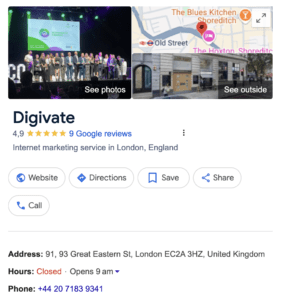
When it comes to competing with big brands, local SEO is one of your secret weapons. While huge corporations may dominate national or global markets, small businesses can shine in their local area by optimising for local search results. Local SEO helps you capture the attention of customers who are actively searching for services or products in your location, giving you a better chance of appearing at the top of search results when people nearby are looking to make a purchase.
To rank higher locally, start by claiming and optimising your Google My Business profile, ensuring your business information is accurate and complete. Encourage your customers to leave reviews—positive reviews can significantly boost your local SEO efforts. Also, make sure your website includes location-based keywords and that your business is listed in local directories.
One great example of local SEO in action is The Sill, a plant store that grew by focusing on local customers and ranking high in local searches. They use local keywords, showcase their community involvement, and have a strong presence in local search results. By focusing on your specific geographic area, you can avoid the big-brand competition and attract nearby customers looking for exactly what you offer. Local SEO helps you stand out, drive foot traffic, and build a strong local presence that national competitors can’t easily replicate.
6. Create Quality Content
One of the most effective ways to compete with big brands is to focus on creating quality content that resonates with your niche audience. Small businesses have the unique advantage of being able to create highly targeted, in-depth content that speaks directly to the needs and interests of their ideal customers. While larger companies may produce generic content for a broad audience, small businesses can thrive by focusing on niche topics, providing value, and becoming go-to experts in their field.
Creating valuable content that addresses your audience’s pain points, answers their questions, or offers solutions helps you build authority in your industry. Whether it’s through blog posts, videos, or social media, share insights that demonstrate your expertise and provide real, practical value to your audience. For example, if you run a local bakery, writing a blog about the best baking tips or posting recipe videos can help build trust with your audience and position you as the expert in your space.
When you consistently offer content that’s useful and informative, you not only attract visitors but also build credibility. Over time, your customers will turn to your brand as a trusted resource, which is crucial for building lasting relationships and standing out from the larger, less personal competition.
7. Build Relationships, Not Just Transactions
In today’s market, customers are looking for more than just a product or service—they want to feel a connection to your brand. Small businesses have the advantage of being able to cultivate deeper, more meaningful relationships with their customers. By focusing on customer loyalty and retention, you can transform one-time buyers into long-term supporters.
Building relationships is about treating your customers like people, not just transactions. Take the time to interact with them on social media, respond to their feedback, and show that you genuinely care about their needs. Create a community around your brand where customers feel like they belong. This could mean starting a loyalty program, offering exclusive deals to repeat customers, or even hosting local events to bring your audience together. By creating a sense of community, you encourage customer loyalty and turn your supporters into advocates for your business.
Remember, it’s easier—and more cost-effective—to retain existing customers than to constantly find new ones. Building strong relationships with your customers not only boosts your retention rates but also increases the chances of word-of-mouth referrals, which are invaluable for small businesses looking to compete successfully with larger brands.
8. Be Social and Engage with Your Audience
Small businesses often have the edge when it comes to social media engagement. Unlike big brands with a slew of accounts and a distant corporate feel, small businesses can be much more interactive, creating a personal, authentic connection with their audience. Social media allows you to have one-on-one conversations with your customers, reply to their questions, and engage in meaningful interactions that build trust.
By using social media platforms like Instagram, Facebook, and Twitter, you can build a community around your brand and foster loyal followers. Whether it’s responding to comments, reposting customer content, or initiating fun polls and Q&As, you can create a friendly, approachable vibe that makes your brand stand out. Take Glossier, for example. The beauty brand grew by building a passionate community on social media, engaging with their followers regularly and encouraging them to be a part of the conversation.

Creating meaningful conversations involves more than just promoting your products—it’s about showing that you genuinely care about your audience’s interests and feedback. Ask your followers what they want to see next, or share behind-the-scenes glimpses of your business. The more you interact and connect with them, the more they’ll feel valued and invested in your success.
9. Use Paid Ads Smartly (Not Just Big Budgets)
When competing with big brands, it’s easy to feel like paid ads are out of reach for small businesses, especially with the large budgets that major corporations pour into their campaigns. But the key to success with paid ads isn’t the size of your budget—it’s how smartly you use it.
For small businesses, the trick is to optimise paid campaigns by targeting the right audience with precision. Thanks to tools like Facebook Ads Manager, Google Ads, and LinkedIn Ads, you can run hyper-targeted campaigns that reach specific demographics, interests, and locations—without breaking the bank. Start by defining your audience clearly: who are they, what do they need, and where do they hang out online? Once you know this, you can tailor your ads to meet their exact needs, ensuring that your budget is spent on reaching people who are likely to convert.
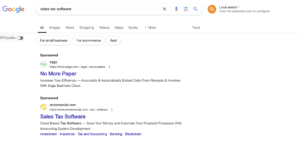
Additionally, testing is key. With smaller budgets, it’s essential to experiment and test different ad creatives, copy, and targeting options to find what works best. Start with a small test budget, analyse the results, and adjust accordingly. Over time, you’ll learn which strategies give you the best return on investment (ROI), allowing you to scale your ads intelligently. By focusing on high-quality targeting and constant testing, you can run successful paid ad campaigns without needing a massive budget, allowing you to compete with even the biggest players.
10. Partner with Other Small Business Owners
Collaboration is a powerful tool in the small business world. By teaming up with other local or like-minded businesses, you can amplify your efforts and reach new audiences without the need for huge budgets. Small businesses can benefit greatly from strategic partnerships, where both parties bring something valuable to the table.
Partnering with complementary businesses allows you to cross-promote products or services, run joint campaigns, or even offer bundled deals. For example, if you run a local café, partnering with a nearby bakery to offer a “coffee and pastry” deal could attract a wider crowd. Small businesses often have a stronger connection to the community, which makes collaborations more personal and effective.
Beyond just expanding reach, partnerships can also lead to shared resources, knowledge, and support, helping both businesses grow in a more sustainable and organic way. The power of a small business ecosystem lies in the collective strength of its members. Together, small businesses can accomplish more and compete more effectively with larger corporations.
11. Offer Customisation and Personalisation
One of the biggest advantages small businesses have over big brands is the ability to personalise their products and services. Big corporations often struggle to offer the tailored experiences that customers crave, whereas small businesses can turn personalisation into a powerful differentiator.
Whether it’s customising products (like engraved items or made-to-order options) or offering bespoke services, small businesses can offer customers a much more individualised experience. This level of attention makes customers feel valued, and as a result, they’re more likely to become loyal to your brand.
For instance, a local boutique might offer customers the option to add monograms to their clothing or a skincare brand could offer personalised consultations. You can also personalise customer experiences online, by using their previous purchases to suggest relevant products or services. This customer-centric approach builds relationships and trust—something larger companies can struggle to do on the same scale. By tapping into personalisation, small businesses can carve out a unique niche and win the hearts of customers looking for a more bespoke experience.
12. Embrace Influencer Marketing on a Smaller Scale
While big brands often work with celebrities or massive influencers, small businesses can level the playing field by collaborating with micro-influencers who have a more niche, loyal, and engaged audience. Micro-influencers may have fewer followers, but they typically boast a more genuine connection with their audience, which leads to higher engagement rates and more authentic promotion of your products or services.
By working with influencers who align with your brand values and appeal to your target audience, you can tap into a more personal, impactful form of marketing. Whether it’s a local influencer or someone with a strong following in your industry, collaborating on content or product reviews can drive awareness and trust for your business. These partnerships are often more affordable than working with big-name influencers, and they can bring tangible results.
Benefits of working with micro-influencers include cost-effectiveness, higher engagement, and the ability to reach more specific or localised audiences. The key is to build genuine relationships with these influencers, rather than just paying for one-off posts. By maintaining long-term collaborations, you can nurture a sense of authenticity and loyalty that resonates with their followers and makes your brand stand out in a crowded market.
13. Innovate with Limited Resources
Small businesses are often forced to be creative due to limited budgets, but this can actually be a major advantage. Being resourceful means you can stay innovative and experiment with new ideas that larger companies might not have the flexibility or willingness to try. The best part? Innovation doesn’t always require a hefty budget.
For example, instead of relying on expensive marketing campaigns, a small business might create viral social media content that speaks directly to their audience’s interests or pain points. A bakery could introduce a limited-edition flavour and promote it through an Instagram campaign, building excitement and urgency. Another small business might create a unique customer experience—like a pop-up shop or event—that builds buzz and attracts attention.
Even with minimal resources, small businesses can leverage creativity to make a big impact. In fact, some of the most memorable innovations come from those thinking outside the box. Examples of successful small business innovations include online subscription services that make the most of direct-to-consumer sales, and local businesses creating exclusive partnerships to offer customers something unique.
14. Master Email Marketing
Email marketing is an extremely powerful tool for small businesses looking to engage directly with their customers and build a loyal following. With a bit of effort, you can craft personalised email campaigns that feel authentic and relevant to your audience, rather than just another generic message from a faceless corporation.
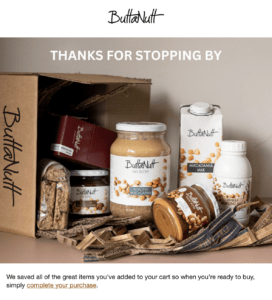
To make your emails stand out, focus on writing compelling subject lines and content that speaks directly to your customers’ interests and needs. Personalisation is key—whether it’s addressing recipients by name, recommending products based on their past purchases, or offering exclusive deals, people respond better when they feel like the message was made specifically for them.
Segmenting your email list allows you to send tailored content to different groups of subscribers, based on their behaviour, preferences, or stage in the customer journey. Whether you’re nurturing leads, sending out promotions, or announcing new products, segmentation allows you to ensure each message is highly targeted and impactful.
Tips for success include keeping your emails short and engaging, using a clear call-to-action (CTA), and testing different elements (like subject lines, send times, and content) to optimise your campaigns. Mastering email marketing enables you to stay top-of-mind for your audience and build a stronger, more personal relationship with your customers.
15. Offer Exclusive Deals and Loyalty Programs
Offering exclusive deals and loyalty programs is a great way for small businesses to create a deeper connection with their customers and keep them coming back. While large brands often offer generic promotions, you have the ability to be more personal and flexible, crafting offers that feel special and tailored to your community.
Loyalty programs are a fantastic way to reward repeat customers and encourage them to continue supporting your business. It doesn’t need to be a complex system—simple approaches like offering points for every purchase, or providing VIP discounts after a certain number of purchases, can go a long way. The key is to make customers feel appreciated and recognised for their loyalty.
Additionally, consider offering exclusive deals to customers who sign up for your email list, follow you on social media, or refer friends to your business. This creates a sense of exclusivity, making your customers feel like they’re part of something special. Over time, these programs can help build a strong sense of community, increase repeat business, and set you apart from the competition.
A simple loyalty program can be a highly effective and low-cost strategy for competing with big brands, allowing you to build stronger relationships with your customers and drive consistent business growth.
16. Focus on User Experience (UX)
When it comes to competing with larger brands, UX can be your secret weapon. Small businesses can often excel in this area because they have the ability to create customised, seamless website experiences without being bogged down by corporate bureaucracy or complicated procedures. Providing a smooth, intuitive journey for customers on your site can lead to higher engagement, more conversions, and repeat customers.
Start by ensuring your website is mobile-friendly—with more people shopping on their phones, a mobile-optimised site is essential. Page load speed is also crucial; slow websites turn customers off, so aim for fast load times to keep users engaged.
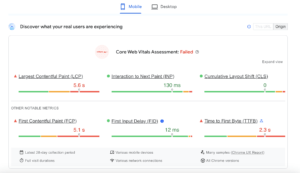
Simplify the checkout process and make it as easy as possible for visitors to find what they need, whether it’s browsing your products or contacting you. Clear calls to action (CTAs) and easy navigation make it effortless for users to move through your site.
Easy UX improvements include simplifying forms, making buttons easy to click, and reducing the number of steps required to make a purchase. A positive UX experience not only helps your customers feel more comfortable but also boosts your credibility and trustworthiness. With small tweaks, you can outshine larger competitors who may be stuck with a more rigid system.
17. Use Retargeting to Stay Top of Mind
Retargeting ads are a highly effective way for small businesses to stay in front of potential customers who may not have converted yet. Retargeting works by showing ads to people who have already interacted with your website or content, whether that’s by visiting a product page, adding an item to their cart, or just browsing your site. These ads act as reminders, keeping your brand fresh in the minds of potential customers as they continue their online journey.
Retargeting is also an excellent tool for businesses on a smaller budget because you’re targeting people who are already familiar with your brand. This highly targeted approach ensures that your ad spend is being used efficiently, as you’re not wasting money trying to reach cold leads. With retargeting, you’re essentially focusing on qualified prospects who have already shown interest in your product offering.
Retargeting works because it reinforces your message and keeps you top of mind for potential buyers. If someone visited your site but didn’t make a purchase, retargeting ads can encourage them to return and complete their transaction. It’s an easy yet powerful way to boost conversions and nurture leads over time.
18. Monitor Competitors and Learn from Them
While you’re focused on your own business, it’s important to keep an eye on what your competitors—especially the larger brands—are doing. Analysing the big guys can give you key insights into what’s working in your industry and what’s not. By observing their marketing strategies, content, customer engagement tactics, and product offerings, you can gather valuable data that can help you shape your own approach.
Don’t just copy what’s working for them, though—adjust your approach based on what resonates with your own audience. For example, if a competitor is having success with a specific type of content or a promotional campaign, think about how you can adapt that idea to fit your brand’s voice, values, and goals. You don’t have to reinvent the wheel. By keeping tabs on the market leaders, you can fine-tune your strategy and capitalise on what’s already working, while still offering something unique that sets you apart.
By monitoring competitors regularly, you’ll be in a better position to make informed decisions and stay agile in a competitive market.
19. Be Transparent and Authentic
One of the greatest advantages small businesses have over large corporations is the ability to be authentic and transparent. Honesty and openness go a long way in building trust with your customers, especially in today’s world where people are looking for brands they can connect with on a deeper level. Small businesses can easily integrate this approach into their branding and communication strategies, giving them an edge over the more impersonal nature of big companies.
Being transparent about your values, practices, and products shows your customers that you have nothing to hide. Whether it’s about where your products come from, how your business operates, or why you make certain decisions, being open fosters a sense of trust and loyalty with your audience. People appreciate businesses that are real with them, and they’re more likely to become repeat customers and brand advocates when they feel they know the person or people behind the business.
The benefits of being transparent are clear: you create a strong emotional connection with your audience, establish credibility, and differentiate yourself from the large, often faceless competitors. Authenticity is key to building long-term, meaningful relationships with customers, and it can be your ultimate superpower in the fight against bigger brands.
20. Establish a Solid Digital Presence for Your Business
In today’s digital world, having a solid online presence is non-negotiable. It’s how customers find you, engage with your brand, and form their first impression. A strong, cohesive presence across your website, social media, and SEO efforts builds trust and professionalism. This consistency shows that you’re serious about your business and that you understand how to connect with your audience in the modern digital landscape.
Your website serves as the foundation of your online presence. It’s where potential customers go to learn more about you. But it doesn’t stop there. Social media is your chance to interact directly with your audience, showcase your personality, and promote your content. Finally, SEO ties it all together, helping your business appear in search results when customers are looking for what you offer. By optimising your digital presence across all these channels, you create a seamless experience for customers, making it easy for them to find you, trust you, and ultimately, do business with you.
A well-established digital presence also signals professionalism and legitimacy, which is crucial when competing with larger brands. The more you can create a polished online reputation, the more you’ll stand out as a credible player in your industry, even without a massive marketing budget.
Lost for what to do? Hire an agency (like us) to be your digital arm!
21. Test Out Marketing Trends
Marketing trends evolve rapidly, and to stay ahead, you need to keep experimenting with the latest tools, strategies, and techniques. The importance of staying on top of trends is that it allows your small business to remain relevant in an ever-changing market. The brands that innovate and evolve are the ones that win, and you don’t need a big budget to do so.
Small businesses can test out new marketing trends on a smaller scale before fully committing. Whether it’s exploring short-form videos, augmented reality experiences, or voice search optimisation, there are plenty of cost-effective ways to experiment with new strategies. Use tools like A/B testing to try out different messaging, visuals, or ad formats and see what resonates most with your audience. This allows you to adapt quickly and make informed decisions without investing heavily in something that doesn’t work.
By staying ahead of trends, you not only keep your marketing fresh but also differentiate your brand from larger competitors who may be slower to innovate. As a small business, you can use your flexibility and agility to test and adjust more rapidly, helping you stay relevant and competitive in your industry.
22. Build Your Reputation with Excellent Customer Service
For small businesses, customer service isn’t just a department – it’s at the heart of your reputation. Consistent, high-quality service is one of the most effective ways to stand out against larger competitors who often struggle with personalisation and agility. Small businesses can leverage their size to create meaningful, one-on-one relationships with customers, offering a more tailored experience that makes people feel valued and heard.
Going above and beyond to exceed expectations can turn an ordinary interaction into a long-lasting relationship. Simple gestures like personalised thank-you notes, follow-up calls, or offering a loyalty discount can make a world of difference. Providing fast, empathetic responses to customer inquiries, solving issues quickly, and being genuinely interested in their feedback will build trust and improve customer retention.
Your reputation is everything, and word-of-mouth is powerful. By delivering excellent service, you make customers feel more inclined to recommend your business to others. This trust you build can become your secret weapon in competing with big companies.
23. Act on Customer Feedback to Improve Your Offering
The best way to stay competitive as a small business is to constantly evolve based on the insights your customers provide. Customer feedback is invaluable – it helps you identify areas for improvement and shows you what your audience truly cares about. By actively listening to your customers and acting on their suggestions, you can refine your products, services, and overall experience to better meet their needs.
To make the most of customer feedback, there are a few essential tools and strategies you can use. Surveys, customer reviews, and social media engagement are great ways to gather direct input. After collecting feedback, make sure you respond to it – either by addressing concerns or sharing improvements you’ve made. This shows customers you’re genuinely invested in their satisfaction.
Additionally, you can use tools like NPS (Net Promoter Score) and customer satisfaction surveys to measure how well you’re doing and pinpoint specific areas for improvement. Tracking this feedback and continuously refining your approach will help you stay relevant, build loyalty, and ultimately, outperform larger competitors who may not have the same level of attention to detail.
24. Segment and Refine Your Target Audience
As a small business, one of your biggest advantages is the ability to narrow your focus and target a specific group of customers. Instead of trying to appeal to everyone, refining your audience allows you to tailor your marketing efforts more effectively. By segmenting your audience based on factors like demographics, behaviours, and interests, you can create highly relevant campaigns that speak directly to their needs and desires.
Focusing on smaller groups within your market allows you to personalise your message, making it more likely to resonate with your audience. For example, if you sell eco-friendly products, you might focus on environmentally conscious consumers or people looking for sustainable alternatives. By drilling down into these specific groups, you avoid wasting resources on broad, untargeted campaigns that don’t yield results.
The benefits of audience segmentation are clear: more targeted campaigns mean better ROI, stronger engagement, and a deeper connection with your ideal customers. Understanding your audience on a granular level helps you deliver the right message at the right time – which is something larger brands often struggle to achieve with their mass-market approach.
25. Leverage Branded Content for Your Local Business
For small businesses, creating branded content is an excellent way to showcase your unique value proposition and build a connection with your local community. Branded content goes beyond traditional advertising; it tells a story and gives your audience a reason to care about your business. By sharing content that reflects your values, mission, and personality, you can create a deeper connection with your local audience. Whether it’s a behind-the-scenes video, customer success stories, or local partnerships, branded content humanises your business and makes it more relatable.
What makes branded content so powerful for small businesses is that it resonates better than traditional ads. While ads can often feel impersonal and intrusive, branded content focuses on storytelling and creating value for the customer. It’s about building brand loyalty and trust rather than pushing a product. When customers feel connected to your brand on an emotional level, they are more likely to return and recommend you to others.
For local businesses, this is particularly effective because it highlights your community involvement, shows how you support local causes, and reinforces your commitment to the area. Authentic, local content helps you stand out from larger competitors who may not have the same personal connection to the community. By leveraging branded content, you can establish yourself as a trusted, values-driven brand that goes beyond the transaction.
26. Step Up Your Design Game
A professional and visually appealing design can make a huge difference for your small business, especially when competing with larger brands that might have bigger budgets for flashy campaigns. Design is one of the first things potential customers notice when they land on your website or see your marketing materials. A clean, modern design can instantly boost your credibility, making you look as polished as your competitors.
But here’s the thing: You don’t have to spend a fortune to achieve a professional look. Simple changes like using high-quality images, consistent branding colours, and a clear layout can make a world of difference. If your website feels cluttered or outdated, updating the design can improve user experience (UX), keeping visitors on your site longer and encouraging them to explore what you offer.
For small businesses on a budget, tools like Canva, Squarespace, and Wix can help you create beautiful, functional designs without needing a designer.
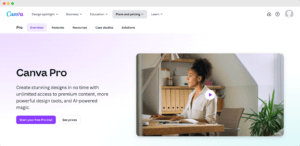
You can also use free website templates or hire a freelancer for simple tweaks. Strong visuals paired with a cohesive branding strategy (logo, colour scheme, fonts) make your business look more professional and trustworthy, giving you that extra edge over the big guys who sometimes overlook the importance of personalisation.
27. Run Local Promotions and Contests
One of the most powerful ways small businesses can compete with bigger brands is by leveraging local promotions and contests. Small businesses excel at grassroots marketing because they are often more connected with the community. Hosting giveaways, local promotions, or fun contests is a great way to build excitement, attract new customers, and increase local visibility.
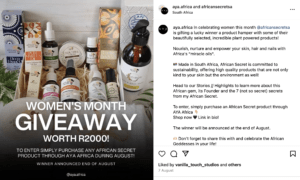
For example, consider running a local Instagram contest where customers can win a prize by tagging friends, sharing a post, or signing up for your email list. Not only does this create engagement, but it also increases word-of-mouth marketing, which is incredibly powerful in small, tight-knit communities. People trust the recommendations of their friends and neighbours more than corporate ads, and this is where small businesses shine.
Running local promotions like discounts, limited-time offers, or “buy one, get one free” deals can also drive foot traffic and encourage people to try your products or services. These promotions feel personal and exclusive, making customers feel like they are getting a special deal that larger brands may not offer.
At the end of the day, local promotions and contests help create a sense of community involvement and personal connection, which is something big companies often struggle to replicate. By tapping into your community’s spirit and leveraging local platforms, you can increase brand awareness and turn first-time customers into loyal supporters.
28. Get Involved in Your Community
Being visible and active in your local community can work wonders for your small business. While larger brands may have the resources to run massive ad campaigns, small businesses can grow through personal connections and by becoming a trusted local presence. Getting involved shows that you’re not just there to make a profit—you genuinely care about the community you serve.
There are tons of ways to volunteer, sponsor events, or host local gatherings to boost brand awareness and foster goodwill. Consider sponsoring a local sports team or charity event to get your name out there in front of potential customers. You can also partner with local schools, community groups, or other small businesses for joint events or fundraisers that benefit the neighbourhood. Not only does this boost your visibility, but it also builds goodwill and strengthens your reputation as a business that cares about its community.
Hosting your own local event, such as a pop-up shop, workshop, or open house, is another great way to engage with the people who live and work near you. This makes your brand feel approachable and gives people the chance to experience what you have to offer first-hand. Plus, the word-of-mouth generated from these events can help attract more customers than traditional advertising ever could.
By positioning your business as an integral part of the community, you can build loyal customers who feel like they are supporting a business that gives back, making you stand out against the other brands that may feel disconnected from local issues.
29. Attract the Best Employees
While small businesses may not be able to compete with large corporations on salary alone, there are other ways to attract top talent and build a dedicated, motivated team. Creating a positive work culture where employees feel valued and have growth opportunities can be a major competitive edge.
The work environment is often one of the most appealing aspects of a small business, and with fewer employees, it’s easier to create a close-knit, collaborative atmosphere. Offering flexible work options, career development opportunities, and a sense of ownership in the company can make employees feel more invested in your business’s success. Additionally, smaller companies often allow employees to take on more responsibility and contribute to a variety of projects, which helps them grow in ways they might not in a large, hierarchical corporation.
For small businesses, passionate, dedicated employees can truly make all the difference. They are more likely to go above and beyond for your customers and to help promote your brand both online and offline. Employees who feel connected to your mission are also more likely to stay with your business long-term, reducing turnover and creating a sense of stability.
Offering recognition and incentives for hard work, as well as fostering a supportive, open-door culture, can attract individuals who are motivated by something other than just a paycheck. These employees will help you deliver exceptional customer service, innovate within your industry, and contribute to your overall business growth.
How Small Businesses Can Compete: The Power is in Your Hands
At the end of the day, competing with the larger businesses doesn’t have to feel like a David vs Goliath scenario. Smaller businesses have a unique set of strengths—agility, authenticity, and the ability to build strong, personal connections with customers. By focusing on what makes you different and leveraging your size to your advantage, you can level the playing field and carve out a niche that resonates with your audience.
Whether it’s through providing outstanding customer service, crafting quality content, or embracing your local community, there are countless ways small businesses can outshine their larger competitors. Innovation, creativity, and a personal touch are your best assets. So, get out there and show the world what you’re made of.
Remember, the giants may have the budget, but you’ve got the heart—and that’s what truly counts.



